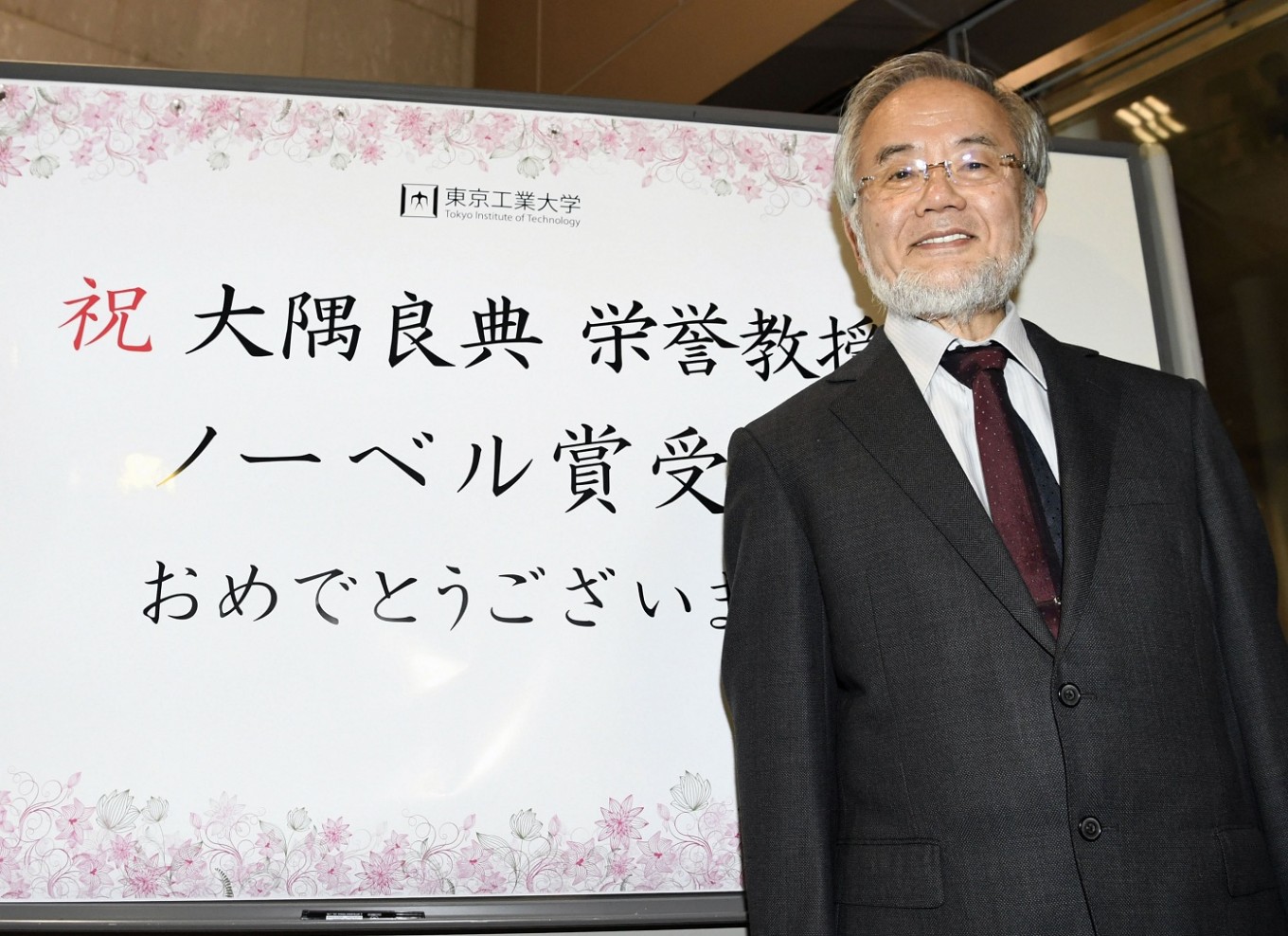Popular Reads
Top Results
Can't find what you're looking for?
View all search resultsPopular Reads
Top Results
Can't find what you're looking for?
View all search resultsNobel medicine prize: A look at the winner and his research
Change text size
Gift Premium Articles
to Anyone
Y
oshinori Ohsumi, a 71-year-old Japanese scientist and professor at the Tokyo Institute of Technology, is this year's winner of the Nobel Prize in medicine.
Here's a look at why he won and the significance of his discoveries:
___
OHSUMI'S RESEARCH
Ohsumi is being recognized for groundbreaking experiments in the 1990s dealing with autophagy, the "self-eating" process that lets a cell break down and recycle some of its contents, which rapidly provides fuel and building blocks.
Breakdowns in the autophagy process have been linked to a number of grave diseases including Parkinson's, diabetes and cancer.
The Karolinska Institute said researchers had known about autophagy (aw-TAH'-fuh-jee) for half a century, but its wide-ranging significance was only made clear by Ohsumi's experiments.
(Read also: 5 decisions that made the Nobel Prizes look bad)
___
WHY NOW?
It is common for Nobel judges to honor people for discoveries that were actually made years or decades earlier to assure that the research was valid and its importance borne out over time.
It may take many years before the relevance and value of some discoveries becomes clear.
___
SIGNIFICANCE
The Karolinska Institute said there is a surge in research about how to develop drugs that can target autophagy for the treatment of cell problems involved in many serious diseases.
Because of Ohsumi's research, and the experiments of those guided by it, the role of autophagy in controlling vital physiological functions is better understood and may be put to therapeutic use.
___
REACTION
Ohsumi's initial response to winning a Nobel was sheer delight.
Nobel secretary Thomas Perlmann, who conveyed the news that he had won to the scientist, said that "the first thing he said was 'ahhh.' He was very, very pleased."
Later Ohsumi told Japanese broadcaster NHK that "as a scientist, I'm extremely honored." Speaking Japanese, he said he had wanted to pursue "something different from other people" when he decided to focus on autophagy.











